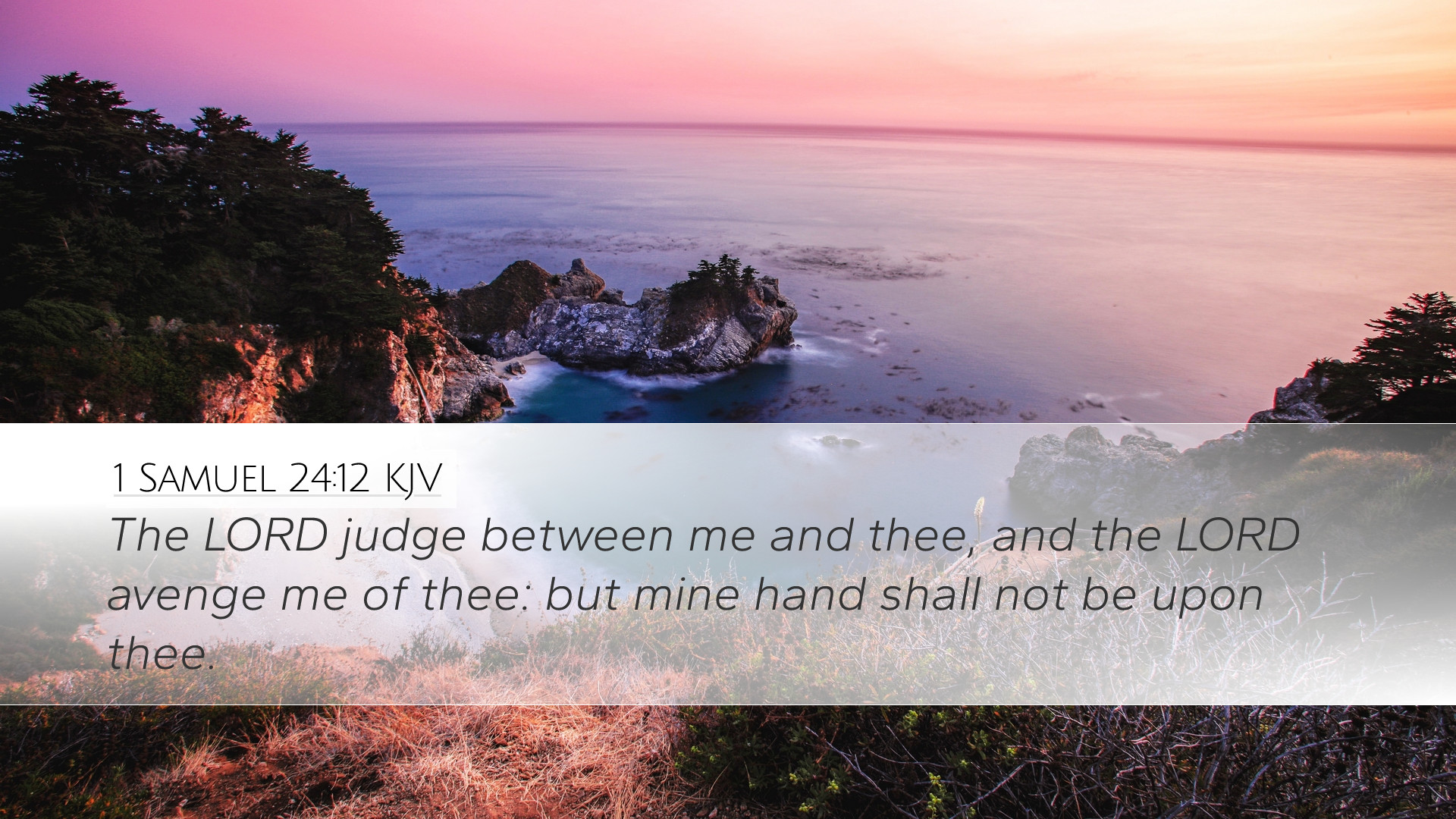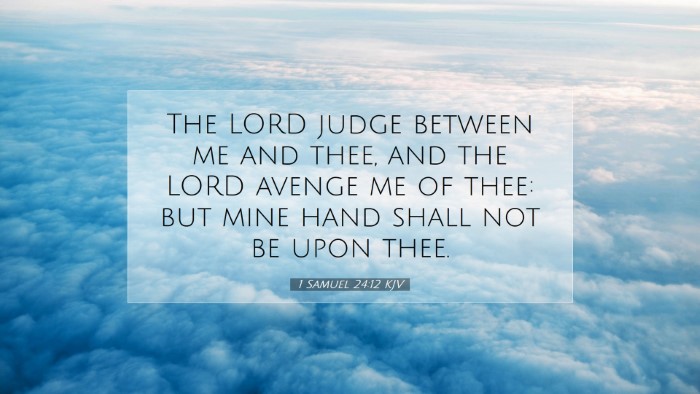1 Samuel 24:12 - Commentary
Verse: "The LORD judge between you and me, and the LORD avenge me of thee: but mine hand shall not be upon thee."
Introduction
This verse exemplifies a profound moment in the life of David as he confronts the complex relationship with Saul, the current king of Israel, who was pursuing him with the intention to kill. The statement reflects David's faith in God's justice and his refusal to take vengeance into his own hands. By exploring insights from public domain commentaries, we can gain a deeper understanding of this pivotal scripture.
Contextual Background
The circumstances within 1 Samuel 24 are marked by tension and conflict. Saul, driven by jealousy and fear of David's rising popularity, seeks to eliminate what he perceives as a threat to his throne. David, protected by divine providence, finds himself in a position where he must choose between the temptation of murder and the call to trust in God.
Matthew Henry emphasizes that this confrontation takes place in the wilderness of Engedi, where David has the opportunity to kill Saul but chooses mercy instead. This illustrates David’s character and his adherence to divine principles over personal desire.
Analysis of Key Phrases
-
The LORD judge between you and me:
David appeals to divine judgment, reinforcing his faith in God as the ultimate arbiter of justice. Albert Barnes indicates that this phrase reveals David's confidence in God’s righteousness, signifying that he does not wish to take the law into his own hands.
-
the LORD avenge me of thee:
Here, David acknowledges the reality of being wronged yet refrains from demanding immediate retribution. Adam Clarke notes that David's trust is not in personal vengeance but in God’s timing and method of deliverance.
-
but mine hand shall not be upon thee:
David’s refusal to harm Saul is a significant act of restraint. Matthew Henry points out that true strength is often demonstrated through mercy rather than violence, illustrating David's understanding of the sacredness of life and his respect for God’s anointed king.
Theological Implications
The verse serves as a powerful lesson in the tension between justice and mercy. It reveals a key theological principle: God desires His followers to seek peace and refrain from revenge. Albert Barnes suggests that this encounter teaches about the importance of forbearance and the faith necessary to allow God to provide justice in His timing.
This moment also reflects the quintessential Christian principle of loving one’s enemies, echoing the teachings of Jesus in the New Testament. David stands as a type of Christ, exemplifying the self-sacrificing love that believers are called to imitate.
Practical Application
For pastors, students, theologians, and scholars, 1 Samuel 24:12 presents an opportunity to reflect on how to handle conflict and relationships with individuals who may have wronged us. The passage encourages believers to:
-
Trust in God's Justice:
Believers are encouraged to trust that God will ultimately judge and avenge wrongs, allowing them to let go of bitterness and the desire for revenge.
-
Practice Forgiveness and Mercy:
David's response is a model of how to extend grace even in the face of personal injustice, reaffirming the call to forgive those who wrong us.
-
Resist Temptation for Revenge:
The narrative teaches that believers should resist the temptation to respond in kind to their enemies, demonstrating that true strength comes in self-control and love.
Conclusion
In grappling with the deep moral and spiritual truths presented in 1 Samuel 24:12, believers are reminded of the imperative to rely upon God’s justice rather than their own impulses. The insights drawn from Matthew Henry, Albert Barnes, and Adam Clarke enrich our understanding of this pivotal biblical moment and invite us to reshape our hearts towards forgiveness, mercy, and unwavering faith in God’s righteous judgment.


